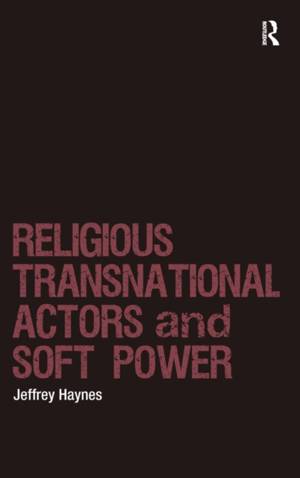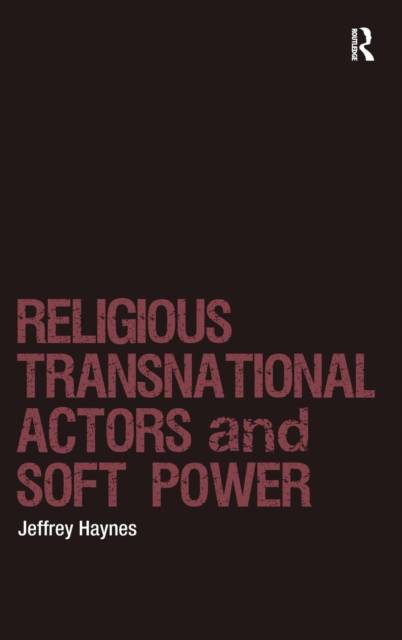
- Afhalen na 1 uur in een winkel met voorraad
- Gratis thuislevering in België vanaf € 30
- Ruim aanbod met 7 miljoen producten
- Afhalen na 1 uur in een winkel met voorraad
- Gratis thuislevering in België vanaf € 30
- Ruim aanbod met 7 miljoen producten
Zoeken
Omschrijving
Haynes looks at religious transnational actors in the context of international relations, with a focus on both security and order. With renewed scholarly interest in the involvement of religion in international relations, many observers and scholars have found this move unexpected because it challenges conventional wisdom about the nature and long-term historical impact of secularisation. The 'return' of religion to international relations necessarily involves deprivatisation. Recent challenges to international security and order emanate from various entities, notably 'extremists', people often said to be 'excluded' from the benefits of globalisation for reasons of culture, history and geography. This study looks at the dynamics of this new religious pluralism as it influences the global political landscape. Several specific transnational religious actors are examined in the chapters including: American Evangelical Protestants, Roman Catholics, the Organisation of the Islamic Conference, Sunni extremist groups (al Qaeda and Lashkar-e-Taiba), and Shia transnational networks. While varying widely in what they seek to achieve, they also share an important characteristic: each seeks to use religious soft power to advance their interests. In sum, these religious transnational actors all wish to see the spread and development of certain values and norms, which impact on international security and order.
Specificaties
Betrokkenen
- Auteur(s):
- Uitgeverij:
Inhoud
- Aantal bladzijden:
- 184
- Taal:
- Engels
- Reeks:
Eigenschappen
- Productcode (EAN):
- 9781409425083
- Verschijningsdatum:
- 28/07/2012
- Uitvoering:
- Hardcover
- Formaat:
- Genaaid
- Afmetingen:
- 156 mm x 234 mm
- Gewicht:
- 435 g

Alleen bij Standaard Boekhandel
+ 580 punten op je klantenkaart van Standaard Boekhandel
Beoordelingen
We publiceren alleen reviews die voldoen aan de voorwaarden voor reviews. Bekijk onze voorwaarden voor reviews.











